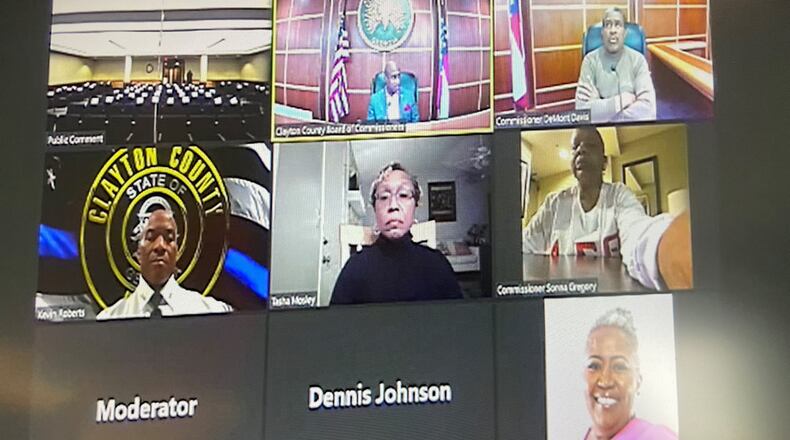Clayton County is considering the creation of a medical examiner’s office to replace services it now receives from the Georgia Bureau of Investigation.
The GBI plans to end its medical examiner services to the county Feb. 1, which has left Clayton officials with three options: contract the work with a different agency, create a coroner’s position, or launch an examiner’s office of their own.
“It’s imperative we get this moving right now,” Clayton County Chairman Jeff Turner said at a recent commission work session in which the general consensus seemed to lean toward creating a medical examiner’s office. The commissioners did not say when they expected a full vote of the board.
If Clayton does seek to start its own examiner’s office, it will come at a cost. Preliminary estimates set the annual costs for the office at about $1.5 million, almost quadruple the $403,000 the county pays the GBI, Clayton Police Chief Kevin Roberts said.
By comparison, the medical examiner’s office operations of three of metro Atlanta’s biggest counties — Cobb, DeKalb and Fulton — costs between $2.4 million and $5.3 million annually, Roberts said.
“The scope of services is extensive,” Roberts said, explaining that the medical examiner’s duties would include responding to fatal accidents, determining cause of death, signing death certificates and contacting families.
The increased costs would likely force Clayton to amend its 2021 fiscal budget sometime in the next six months, Turner said. That includes knowing the size of the staff and whether the county will need to build a new facility.
During the work session discussion, the leaders seemed to veto using a private service after failing to find one that would collect and store bodies in an extended contract. And they were less enthused about creating a coroner’s post because it would require legislative action, and because of the time it would take to hold an election.
Clayton County District Attorney Tasha Mosley said creating a medical examiner’s office is the best choice. Contracting the operations to different services could be a nightmare for prosecutors, especially if a body in a criminal matter is touched by several entities before it is examined, including those who collect it, transport it and store it.
“That’s just a defense attorney’s field day,” she said. “The more people that touch it, the more things that they’ll say we did wrong.”
About the Author
Keep Reading
The Latest
Featured


